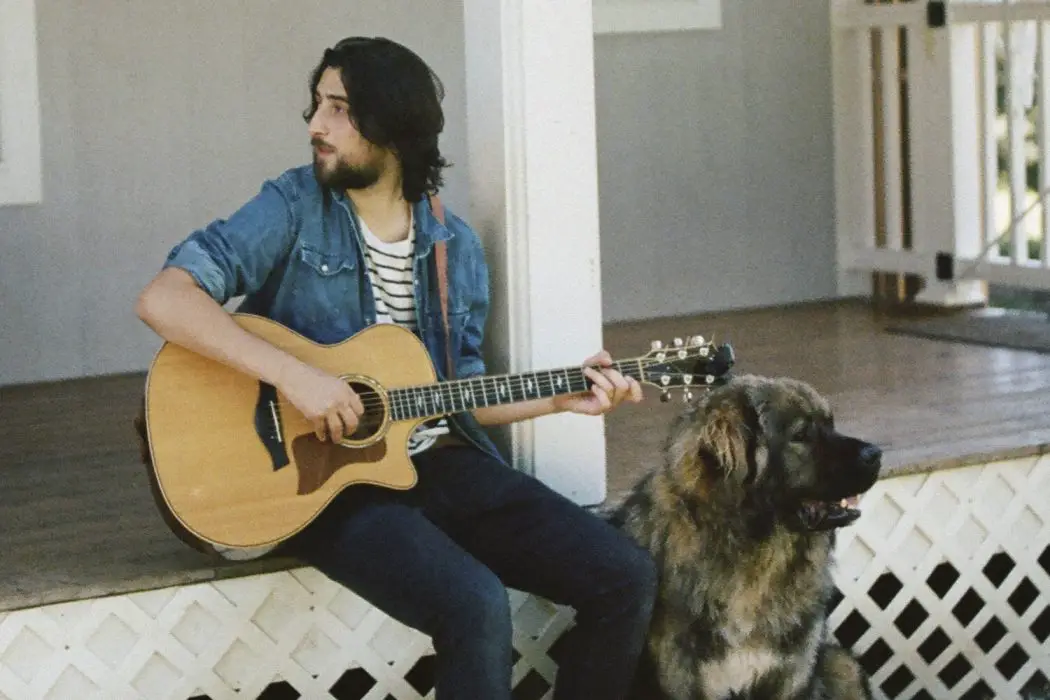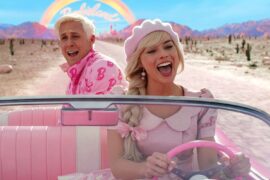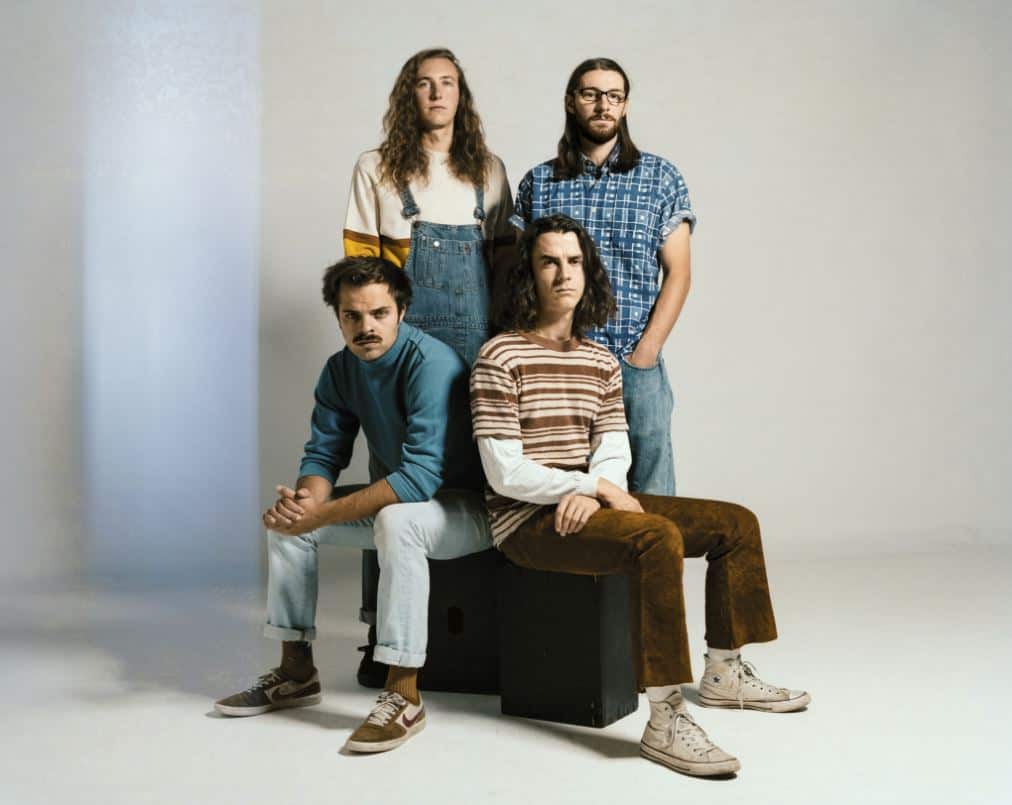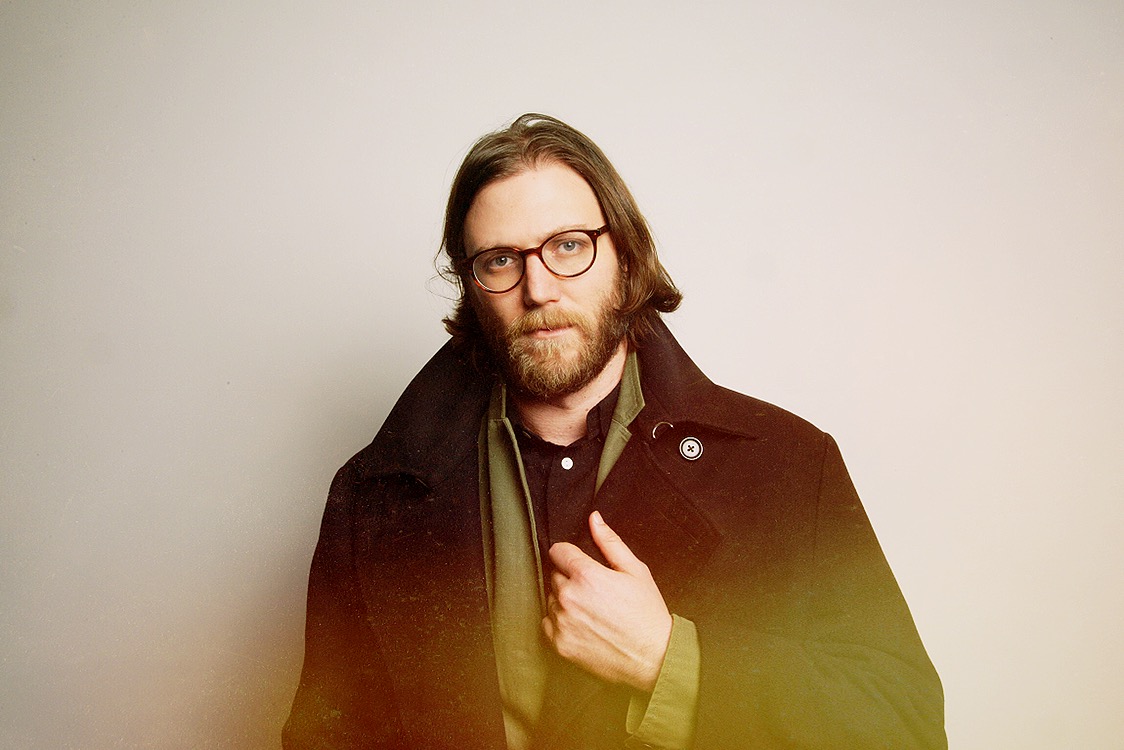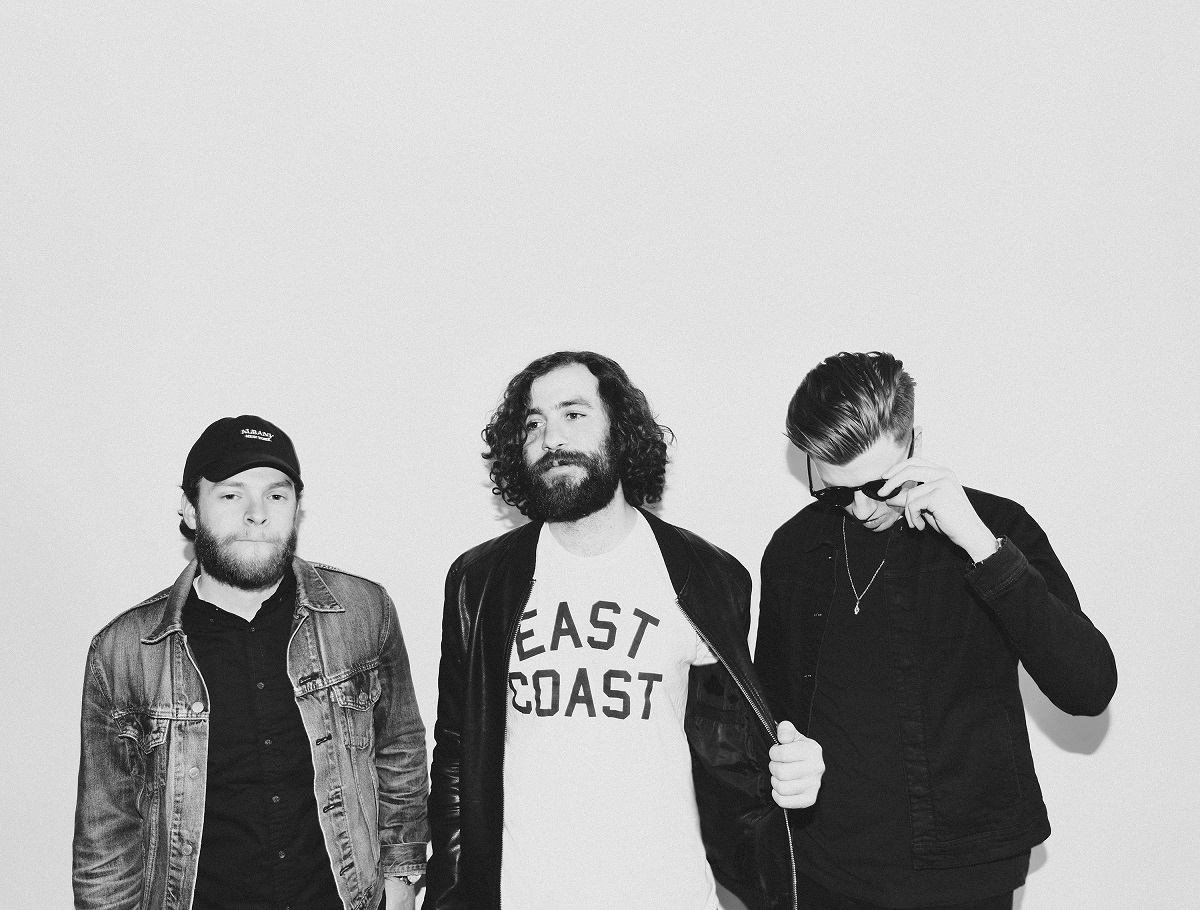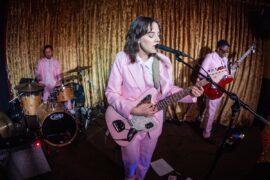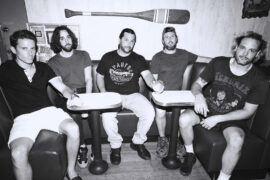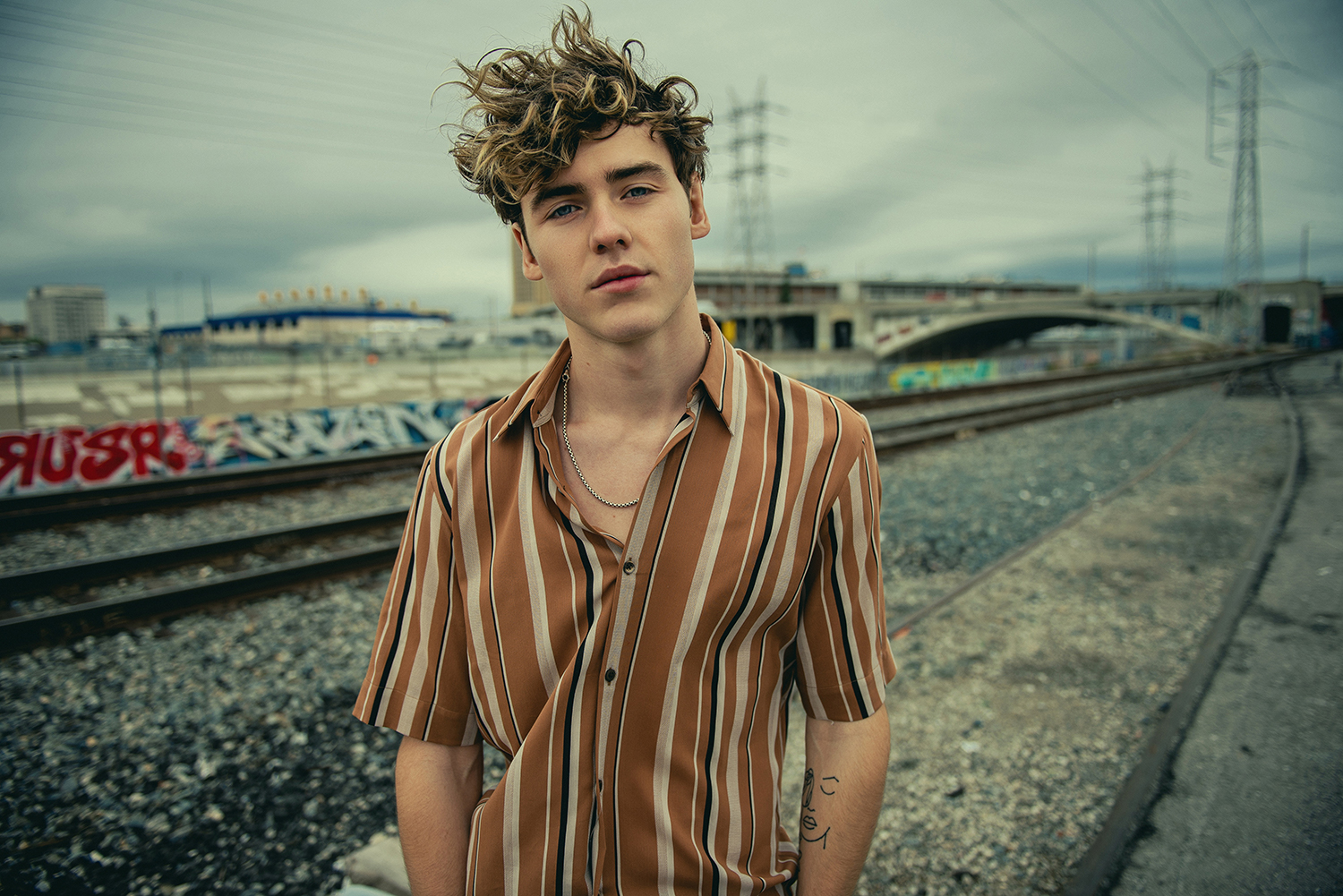Raw, intimate, and unplugged, Noah Kahan’s ‘Cape Elizabeth’ EP is a deep breath of fresh, invigorating folk that finds the Vermont singer/songwriter doing what he does best: Capturing and recapitulating universal experience through relatable stories, heartfelt lyrics, and unfiltered emotion.
Stream: ‘Cape Elizabeth EP’ – Noah Kahan
This EP was created in this troubling time period, and I wanted to do justice to the moment.
If there is one thing we can all agree to, it is that these are not normal times. They didn’t feel especially normal before COVID-19, and they certainly aren’t normal now. It’s in moments like these that we collectively turn to art not merely for entertainment, but for help coping with life and getting through our individual circumstances – and that’s exactly what we get with Noah Kahan’s new EP. Raw, intimate, and unplugged, Cape Elizabeth is a deep breath of fresh, invigorating folk that finds the Vermont singer/songwriter doing what he does best: Capturing and recapitulating universal experience through relatable stories, heartfelt lyrics, and unfiltered emotion.
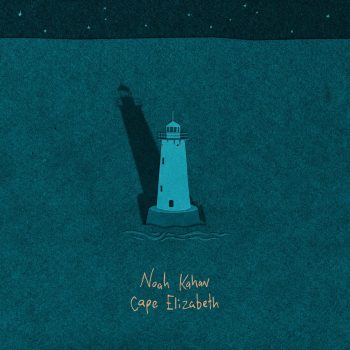
I worry for the sun,
yes, I worry for the snow
I worry I’ll die young
while I worry I’ll grow old
Oh, I worry for the time
I spend worrying alone
It makes me sad…
It takes me back
I break in half
Fans of Noah Kahan the pop singer/songwriter, meet Noah Kahan the folk troubadour.
Released on May 1st via Republic Records, Cape Elizabeth presents the “Hurt Somebody” artist in his most raw, acoustic, and authentic form.
“My background in music is very much me on the acoustic guitar singing very folky songs, listening to Gregory Alan Isakov growing up, Paul Simon… Mumford and Sons are one of my favorite bands ever, and I used to make music like that all the time,” Kahan recently shared over a Zoom call. “It’s the kind of music that I grew up loving. Folk music, storytelling songwriting, raw acoustic guitar, vocals, simplicity, those are the things I really value in songwriting that I’ve always been focused on when I was listening to music or approaching artists that I really liked. In this record, I’m trying to do that.”
Safely recorded with Kahan’s friend Phin Choukas, Cape Elizabeth came to life during Vermont’s COVID-19 shelter-in-place order. Its five songs range in age, but they all loosely revolve around a story of love and loss that takes place in Cape Elizabeth, Maine – a beautiful, quaint New England town that Kahan hopes to visit some day soon. “It struck me as a place that could set the scene for the stories on this record,” Kahan explains. “I’ve always loved when artists imagine places and write in a way that makes you feel like you’re looking in on some kind of story, and I wanted to do that with this record.”
Back when Kahan was first starting to gain recognition in 2018, Atwood Magazine made a bold statement: That his songs “are a deft reminder that great songwriters make great songs.” While he already proved us right last year with his critically-acclaimed debut album Busyhead, Cape Elizabeth leaves us knowing without a doubt that Noah Kahan is a truly great songwriter: The radiant “Glue Myself Shut” acts as a sunny burst of light, and the poetic closer “Maine” brings us up close and personal with a scenic, breathtaking expanse full of nostalgic intimacy and imagery. Meanwhile, songs like the EP’s aching opener “A Troubled Mind” and the movingly bittersweet “Close Behind” glisten with sincerity as the artist embraces, clings to, and celebrates human connection.
No matter where you live in the world, you’re likely trying to balance a steady diet of pandemic-related news and guidelines with the rest of life – work, family, friends, and so on. It’s enough to overwhelm even the most centered, grounded soul. In Cape Elizabeth, we get both an escape and a cathartic, rejuvenating release all in one. Noah Kahan gives us exactly the kind of stripped-down folk we need right now in a collection that will feel fresh and meaningful for many years to come.
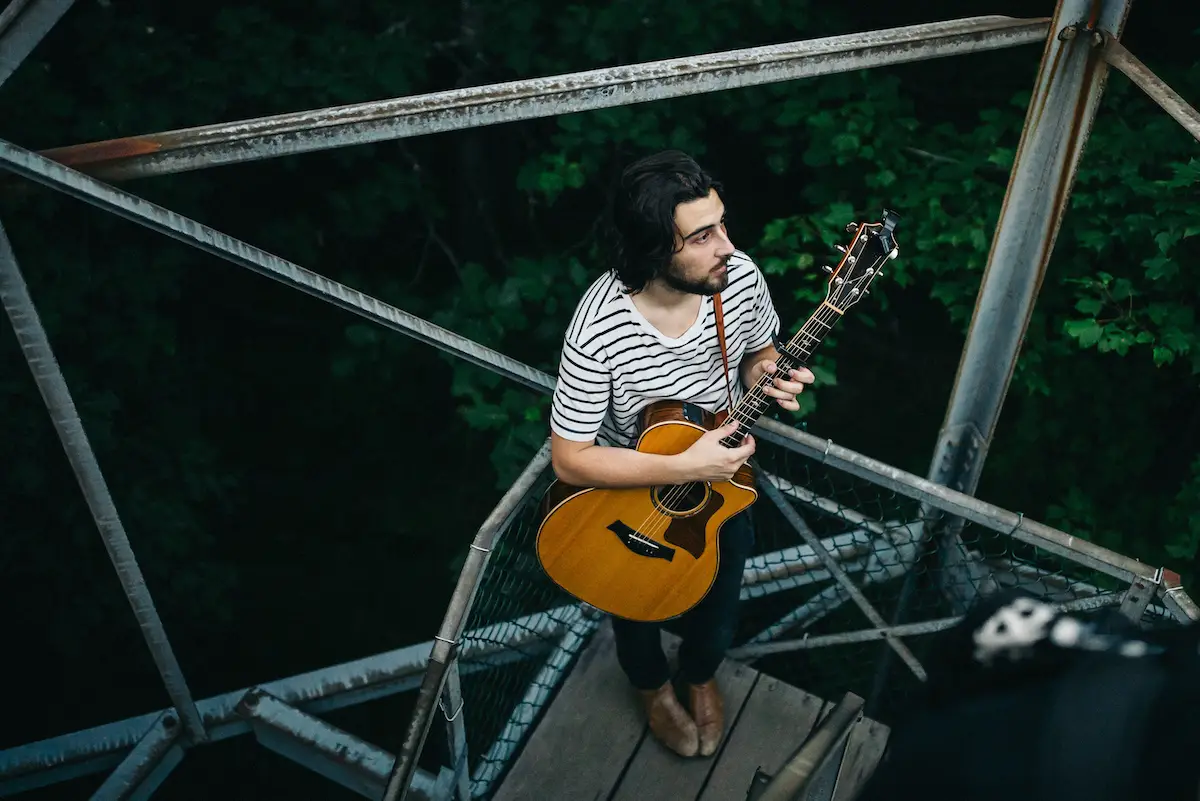
“I wanted to have fun with this record and not necessarily look at it like some intense audition for the world of music,” Kahan told Atwood Magazine. “I wanted to give people a chance to hear these songs that are meant to be stripped down, actually stripped down instead of, you know, trying to dress them up and make them these huge productions… I wanted to prove to myself that I can have a career in music and also make music that is fun for me to do… Having the opportunity to release it is something really special.”
We’ve never heard Noah Kahan this acoustic and stripped-down, and we very well may never again hear him quite this raw.
Cape Elizabeth is as much a product of Noah Kahan’s past three years, as it is the direct result of this terrible global pandemic. It’s one of those few silver linings – a sprinkle of goodwill and love during a time so full of illness, pain, and death. We’re grateful to have its songs as respite and relief.
Noah Kahan sat down with Atwood Magazine this past week to tell us all about his Cape Elizabeth EP, his love of folk music, life in quarantine, and more: Dive in below, and take twenty minutes out of your day to listen to this very special set of songs. We promise, it’s worth your time.
— —
:: stream/purchase Cape Elizabeth here ::
Stream: ‘Cape Elizabeth EP’ – Noah Kahan
A CONVERSATION NOAH KAHAN
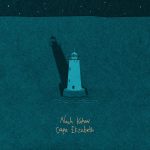
Atwood Magazine: So Noah, how are you doing?
Noah Kahan: Oh man, I’m getting by. I can’t say I’m doing worse or better than anyone else, because it’s hard to kind of get a measure on what success is right now, so I’m just trying to survive and create both music and social media content to keep myself relevant. You know, we’re kind of hanging out by the bootstraps here in the industry, so I’m just grabbing onto those bootstraps and hanging on for dear life.
Does that kind of stuff like self-promotion come naturally to you?
Kahan: It really used to be one of the biggest weaknesses – promoting my music and understand the idea of like a brand and kind of like an aesthetic. I think what made it work for me was not trying to push it or look at it in the way of like, “you need to create this to be successful.” I’ve been encouraged to be myself, and when I’m in Vermont, with my parents, my dogs, and my little brother, I just feel very myself – so I’m able to access that part of me in a way that I’ve been able to kind of translate into the social media medium. It’s been, good so it’s definitely not unnatural, but it’s just something that I’ve kind of eased into, and this has been a good opportunity to try to really focus on that side of things more than just the music.
So, what is this “other side” that you’re showcasing on Cape Elizabeth?
Kahan: I don’t look at it as another side, but if you’re comparing it to music I’ve released already, it’s just the kind of music that I grew up loving. Folk music, storytelling songwriting, raw acoustic guitar, vocals, simplicity, those are the things I really value in songwriting that I’ve always kind of been focused on when I was listening to music or approaching artists that I really liked. In this record, I’m trying to do that; I often spent time in studios with other songwriters that have written hit songs and they’ve gotten big platinum records hanging up on their walls and, you know, we’re trying to write that song that crushes at radio and becomes instantly catchy… That’s always fun and I love doing that, and that’s something that I think I do have a strength in, but I also have a strength in storytelling and songwriting, and creating settings and writing in a more literary style. I’ve been trying to do that on the side for myself as well, and I have always had that other approach that I’ve used… so I’m trying to kind of bring some songs from that approach, and show the world that I can do, more singer/songwriter, folky stuff as well.
Did you have a sense for what you were making, as you were making this record?
Kahan: As I’ve written those kinds of songs, I’ve always in my head placed them in the category that I can release them as something else in itself one day. This isn’t going to be a song that’s going to be put up next to “False Confidence” or “Hurt Somebody,” this is a song that’s going to go in its own category. I’ve been kind of pushing those songs into that place of their own category, and one day I’ll get a chance to put these out and show people that I have these songs – that they’re not just going to sit in my Google Drive or in my computer and my notebook. This tragedy has given me, fortunately, the opportunity to put that music into the world.
Silver linings.
Kahan: Yeah. I try to be careful with silver linings, because there’s so many people who obviously have no silver lining right now and they’re in the worst case situation. I don’t want to act like this is a blessing because it hasn’t, but it’s been convenient, in some ways, and varied in others.
If I’m being honest, I think a lot of these songs continue the same themes you broke ground on in your debut. The big difference, as I see it, is the greater folk bend, and the fact that they’re much fresher from a temporal perspective.
Kahan: I appreciate you saying that. Yeah, I think my songwriting style definitely stays true to me – my life is the same, you know, so I write autobiographically for the most part, try to write about things that I think about – so that stays the same.
I think it’s more just like you said, temporally – the delivery of the music itself is done in a more kind of soft, raw way. That’s also just because that’s an intention we had recording the EP, was doing it in a very raw, kind of, guitar, vocals way. So, yeah, it does seem different, but like you said there’s definitely through lines in all the songwriting in all the songwriting from the record to this project.
I understand you wrote most of the songs while you were on the road?
Kahan: So I wrote a few of them, kind of in the midst of the “Hurt Somebody” success that I was having at the time – I was traveling a lot, I’d come home for a couple days, jet lag recovering from like a 48 hour flight or whatever trip, I’d come home and write some stuff down. That freedom of not overthinking things and that kind of overtired “just fuck it” attitude led to some good ideas. These have been songs that have been evolving for a few years. Some of them have been more recent – “A Troubled Mind” I wrote really recently. But like “Maine,” for example, I wrote the first verse in 2017, the chorus in 2018, and then I finished the last verse a couple weeks ago – so it’s been a long time.
Some people have trouble writing on the road, but like Led Zeppelin, do you think your second album would have been written in entirely transit, had touring continued at the pace you’d been going?
Kahan: I’m finally getting a Led Zeppelin comparison! I’ve been waiting my entire career for this.
I don’t have too much trouble writing on the road… I have trouble writing things that usually end up being very meaningful and grounded, because it’s just not a very grounded atmosphere. I write everyday anyways – I write things down and make sure I’m kind of practicing that skill always, because any kind of writing is valuable. but when I’m on the road, I’m just not able to access feelings in a way that’s very down to earth. The nature of the life itself is so crazy that being on a tour bus, sleeping, and playing shows for whatever amount of people, and then having to sing things and clean up… It’s just not a very normal lifestyle, so I’m not able to approach lyrics normally and really look at things as they are; I’m seeing them through the lens of being exhausted and full of serotonin, tired and depressed – all the different aspects of touring, so it’s just a different kind of writing. But occasionally a song sneaks by, or a really good piece sneaks by! If I can get, like, one really good piece, then I know I’ll be able to finish that later. So that’s the way I look at writing on the road.
When I’m on the road, I’m just not able to access feelings in a way that’s very down to earth.
Right, you kind of have these little moments of brilliance in a whole sea of what the fuck.
Kahan: Put that down, it’s great!

So, tell me about the significance of the title, Cape Elizabeth.
Kahan: Yeah, it’s a lyric in the song “Glue Myself Shut,” I’ve always loved when artists imagine places and write in a way that makes you feel like you’re looking in on some kind of story, and I wanted to do that with this record. Oddly enough, I’ve never been to Cape Elizabeth, Maine; I plan on going this summer – my girlfriend’s dad lives there – but the record is kind of just a story about two people. “Glue Myself Shut” is a story about a guy and a girl who live in Maine, and they go to the city and it doesn’t work out, the guy goes back to Maine and the girl stays in the city. “Maine” is a continuation of that story, and “Cape Elizabeth” just is pretty as hell, sounds beautiful, and struck me as a place that could set the scene for the stories on this record, further stories, and future songs.
“I know I’m quick to sell my heart for some advice, now to ease a troubled mind,” you sing in “A Troubled Mind.” Why begin our adventure with this song?
Kahan: What kind of put this project together was really the nature of the sudden change to everyone’s lives, my life, my career my perspective, with the coronavirus pandemic. I felt like this song spoke to my mindset at the time in a really real way. I felt like I was so worried and I was spending all day worrying that I would forget what I was worrying about; I would see myself an hour later, like what the hell have I been doing this entire time – just straight up worrying for an hour.
I’m worried about forgetting about worrying, I’m so concerned, and people seem so worried and the public consciousness was just so anxious, and I felt like that song spoke to what was going on.
This EP was created in this troubling time period, and I wanted to do justice to the moment with that tune. I also sang with my little brother in a video that we sent to this like local Facebook page that was doing, like quarantine memes and quarantine videos and helping local folks to keep up with each other throughout this whole thing – and a lot of people liked it! People in the comments, it seemed to really kind of help them and make them feel a little less alone with their worries about what’s going on right now, I knew that would be the first song.
https://www.youtube.com/watch?v=EnJEvhH64Zs
It really does bring you in! “I worry for the sun, I worry for the snow, I worry I’ll die young, when I worry I’ll grow old, oh I worry for the time I spend worrying alone, it makes me sad… it takes me back, I break in half.” This song something of a nightmare dressed like a daydream.
Kahan: Absolutely, yeah a lot of a lot of the songs I’ve been trying to make have been like the songs that I connect to in modern and pop music – just really fun sounding melodies and production with just super dim, drastically dark lyrics. I try to do that! I can look at sad things from a funny perspective in my own life, and I try to kind of instill that instinct in the music.
I like that! I think people gravitate toward that just in general.
Kahan: Absolutely. I think so too. I think sarcasm and dry stuff have been what I’ve connected to most, so I try to include that in songs.
What is it about writing about anxiety that helps quell it, for you?
Kahan: I think that any fear you have goes through the kind of washing machine of just loss of perspective and cycling in your head about… it becomes bigger and bigger, and rotates from place to place, and you’re not able to really lose that until you look at it for what it really is – which is usually just an irrational fear. Putting that down into writing is something that makes you see it for what it is – a small thing may not be real, and it gets out of your head, and you’re able to have some tangible data that shows what it really is, and kind of exposes it for what it really is. Doing that in songwriting allows me to also reach out to other people who are going through the same thing and might not have considered that other people felt their feelings before, and then it also allows me to look at my own feelings in a real tangible way that’s productive for my life, and also helps for my mental health.
I like that. Moving on, “Anyway” is gorgeous, if I may say. I think what’s really great here is your ability to highlight all that you can do, with just an electric guitar. I don’t think that’s easy to do; do you find it a challenge, to be so stripped down sonically now that you’ve known what it’s like to have a full band presence?
Kahan: Yeah, definitely. There’s always such a risk of just being boring, especially with these kind of songs. There are songs that are like heartfelt and a little downtempo, and recorded to not necessarily be this huge production, so you can run the risk of losing interest, and also just not having it be dynamic enough, so I try to include as much as I can… I try to let the vocal in the story dictate the whole feeling of the song, because that way I’m in control of what I’m best at. I think my strengths are in songwriting and lyricism, but I think it’s worth having fun on the guitar, and I’ve been getting better at guitar.
I’ve been playing on the road a lot… I was never really able to stay on tempo; I was flying uptempo, my band all thought I sucked, and I worked really, really hard to get to a place where I could really play, and in this project where I’m kind of not allowing myself to be burdened by over-analysis or expectation of myself or comparison, I was trying to have fun and make music. Writing on the guitar is something I’ve been doing, and I wanted to give myself a chance to show the world that I can try to do that! It’s fun to play the guitar and do those little licks and do the Hozier-type runs and stuff like that. It’s fun – I wanted to have fun with this record and not necessarily look at it like some intense audition for the world of music.
I think that's what makes this music feel so good: It's you, and you're not trying to be anybody else.
Kahan: For me, this EP is for my fans – fans of what I’ve done and what I do, and the people that have stuck around with me, and people who knew me before I got signed, and people who come to the show and say, “Hey, I really liked your stripped-down stuff.” I just wanted to give people a chance to hear these songs that are meant to be stripped down, actually stripped down instead of, you know, trying to dress them up and make them these huge productions and trying to have everything on the radio and try to have a smash song. I just think that music doesn’t always have to be about that; before the coronavirus, I felt a little bit like music was just becoming this race to me. I felt like I was racing against other people and racing against my old self and racing against who I wanted to be, and racing against my expectations of myself, and I just wasn’t having a lot of fun with it. And so I came home and I started to really enjoy having fun playing folky songs with my little brother, and my mom filming us. That was what I wanted to chase with this EP, and I wanted to be able to do that, and I wanted to prove to myself that I can have a career in music and also make music that is fun for me to do.
You started with that too, right?
Kahan: Yeah, my background in music is very much me on the acoustic guitar singing very folky songs, listening to Gregory Alan Isakov growing up, and Paul Simon… Mumford and Sons are one of my favorite bands ever, and I used to make music like that all the time! My background was not trying to be anything; I was trying to make music that I felt sounded catchy and cool – singer/songwritery stuff was what inspired me the most.
And it’s really not to say that I don’t love the music that I’ve been making in the past six months, with the big kind of catchier, poppier stuff, but you see a lot of that and you don’t always get the chance to step away from that. Being given the chance, I just wanted to take it and use the opportunity to make some music that’s not necessarily straight-to-radio.

Did making this EP and seeing it actually come to life help you feel a little bit better about this whole race that you were talking about?
Kahan: Yeah, it totally did. Having the opportunity to release it is something really special too, and I really need to do my due diligence and thank the people in charge pulling the strings on a major label, letting me release a project like this is something really special. Knowing that I had that support was what allowed me to kind of really enjoy this process and feel at peace with my situation. I think it just made me feel fulfilled, to be able to do this, because music is a business, and the business is making money, and for better or for worse, the business is writing hit songs and that’s the business I wanted to get into, but being able to take a second and kind of have a little bit of like a spring break with this EP and release some music that I really like, is really special.
It’s the core of where you came from. So back to “Anyway”: “Always, I’ll wait for sharp glass when you break,” you sing. “I’ll be the light that you can’t make. I’ll be your eyes, you be my face, ‘cause darling I get scared for you, and I’m not busy anyway.” Is it ever hard for you to be that kind of reassuring presence?
Kahan: It’s not hard because I look at it as other people being reassuring to me. I think about the people in my life who are just always there for me, and I’m able to really feel that – I really sympathize and respect that support. And so I’m able to kind of go into that mindset and think about myself. I always kind of see myself as the person that they’re helping in these songs, especially in that tune. So I’m access those feelings without feeling like I’m putting a burden on myself to help others.
“Close Behind” makes me think of Romeo & Juliet in its desire for eternal connection. I was wondering if you’d mind talking about maintaining relationships as a professional musician?
Kahan: I think what is hard on tour is the lifestyle, with the hours. You’re working usually at night, usually from like 2pm to like 11pm you’re gonna be doing something that’s going to be a part of the show: Setting up, warming up, loading in, loading out, performing, getting ready, getting yourself into the mindset to sing, wardrobe – there’s just so many active things to be doing, and that is usually the time in most people’s lives, 2-11, where you’re kind of starting to unwind and you’re starting to kind of get done with the day. So that can be hard for any relationship on the road – it’s making that work, but it just takes time. It takes time and it takes trial and error, and yeah, understanding and trust and honesty.
I mean it sounds like you've really learned the ropes, or at least you're able to talk the talk.
Kahan: Absolutely, it’s a learning experience in any relationship – be it friendships, romantic relationships, relationships with your parents, work relationships outside of it – you know, they’re hard to maintain on the road. Once you figure out how to do it, it just becomes as easy as any other relationship.
“Glue Myself Shut” is certainly the sunny pop song on the record, though lyrically it’s really an emotionally turbulent tale. Where did this song come from?
Kahan: I thought about this song in the lens of all the people in my life who have sacrificed for me and been there for me. I’ve always kind of seen myself as the guy who is taking it for granted, and I wanted to write a song about a story about that feeling: Two people who try to make something work, and it didn’t work out for whatever reason, and the realization of one person, that that person was there for them through so much that they had taken for granted. I feel like that’s an awful feeling – feeling like you lost something that was always there for you and always good to you, and I just wanted to explore that feeling and experience that realization as the song was happening a little bit – and also tell a story, at the same time, in the verses, and kind of speak to that greater larger idea in the choruses.
That’s nice! So this brings us to the EP’s last song: I can’t imagine a better way to end this EP than with “Maine.” First off, how did you know the EP was complete – that there weren’t any other songs to add this time around?
Kahan: Literally any reference to Maine or Cape Elizabeth came after I’d already written “Maine,” and decided I wanted to write this record about the town of Cape Elizabeth. “Maine” just felt like the perfect closer sonically, and also, just speaking to that kind of simplicity of going back to an easier time. “Maine” is about two people who used to be together – used to be with each other – and are in very different places, and the perspective of one person wanting to go back to that simpler time, and reconsidering the aspirations that took him away in the first place. I feel that; I really feel that, and I wanted to explore that idea, but also do it in the lens of this Cape Elizabeth concept.
So you close with “Maine” with its sweet acoustics and seagulls?
Kahan: Yes, exactly! It’s cool you think that – those are just birds outside! It’s cool, they do sound like seagulls in the recording.
They put you in the mindset, alongside that acoustic guitar – I mean, what's better than being on a New England beach, than having an acoustic guitar out while you're there?
Kahan: I look like a New England beach, dude. Yeah, acoustic guitar… UVM shirt, beard – I check all the New England boxes. I’m definitely exploring and really feeling connected to New England for real. I’m feeling very connected to where I’m from; Maine is such a beautiful place and such a beautiful part of New England, and I just wanted to explore that a little bit. I’ve done the Vermont thing with “Mess,” and now we’re doing “Maine” – we’re taking a little tour of New England! I’m going to release a song called “Providence” next week, and we’ll be good! [laughs]

You’ve talked about how you want this EP to be an escape. What songs or albums have you been using as an escape during this time?
Kahan: I’ve been listening to the Mt. Joy record a lot. I know I mentioned them last time, but they’re just so great. That Sam Fender record is fantastic. His song “The Border” inspires a lot of storytelling in me; I just think he’s able to really speak to a specific story in a really unique way. It seems like some of the stories were kind of created, and that’s something I’ve really tried to do in this record: I’m trying to create stories, and so I’m trying to listen to music that has storytelling in it!
Let’s see… J.S. Ondara I really like, Sam Fender; I like this girl Eloise, who’s really good, and then Alexander 23 – I really like that dude, been listening to some of him as well!
Thanks for the recommendations, and I appreciate your taking me through this EP. Do you ever go back to your own older songs? Does Busyhead still resonate with you these days?
Kahan: Absolutely. I think Busyhead will always resonate with me; I feel like it really defines me as a person, that term. The songs are all super special, and the reaction to that record has been so special. I feel like my fans have really connected with those songs in a way such that I feel vindicated, because I wrote those songs in a place of turmoil and sadness, and I think they’ve helped some folks, and that kind of forges a lifelong connection with the material. I’ll always have those songs in my heart and I will never take them for granted. So, yeah! Do I listen to them? No. But do I still love them and respect them? Yes. After tour… I can’t listen to my own fucking music anymore. Hearing your own voice, every night for two months, you really start to notice the nasal and the lisp and everything – it starts to become pretty tough!
Well, what can we do? Nasal, it’s who we are!
Kahan: Yeah! [laughs] Yes, sure.
— —
:: stream/purchase Cape Elizabeth here ::
— — — —

Connect to Noah Kahan on
Facebook, Twitter, Instagram
Discover new music on Atwood Magazine
? © Ben Rosser
:: Stream Noah Kahan ::

